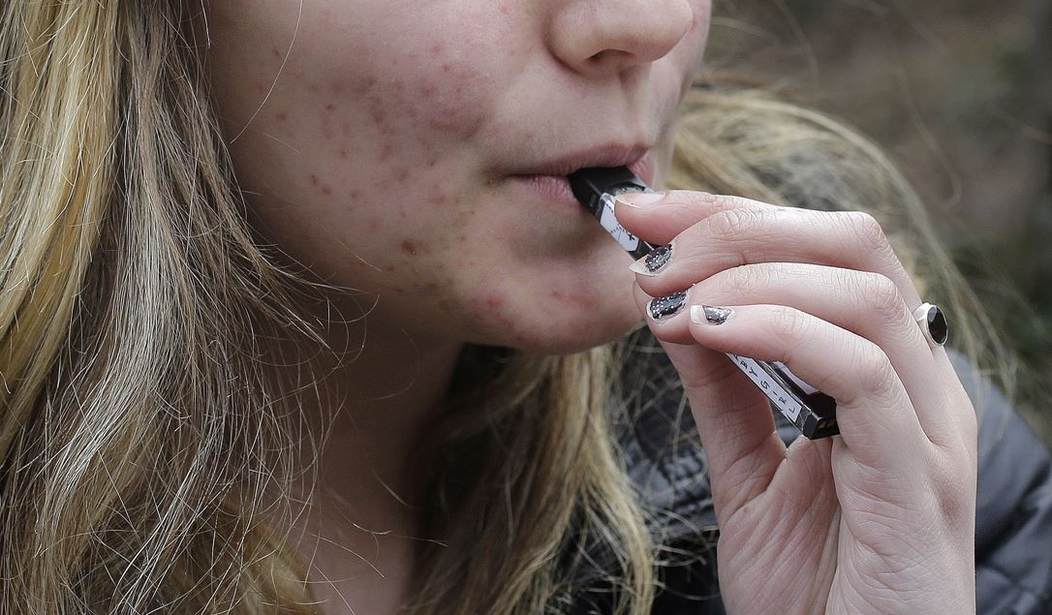On April 14, Tony Dokoupil (co-host of CBS Mornings TV show), highlighted the stark differences between the UK and U.S. regarding tobacco control policy and observed that “[o]ne of us is right and one of us is wrong.”
His commentary was a reaction to the UK government announcing earlier in the week that it planned to supercharge attempts to quit smoking by giving up to one million free vapor products to the five million adults who currently smoke in an initiative dubbed “swap to stop.” Dokoupil rightly identified that “stakes could not be higher because hundreds of thousands of people die every year … because they are smoking.”
Even before the UK announcement, which also included financial incentives for pregnant women to quit and extra funding for stronger enforcement of existing regulations prohibiting underage sales of e-cigarettes, the UK had already made vaping a central plank in its tobacco control efforts.
Smoking cessation centers have long recommended vapor products in a wide variety of flavors to help people quit. The National Health Service endorses them (as do health charities) for adults who cannot quit smoking by other means. There is cross-party political support for vaping, and vape shops are even found in some hospitals. This is not surprising since smoking rates have declined dramatically in the UK since vaping went mainstream. Rates have declined from more than 20 percent in 2011 to just over 13 percent now. These numbers continue to fall.
Recommended
Dokoupil did not have long to wait for his answer. Just four days later, cigarette company XXII Century, announced that it was launching a brand new combustible cigarette in to the U.S. market. This follows on from the same company having been granted market authorization for another new, supposedly less harmful, cigarette in 2021. In fact, the Food and Drug Administration (FDA) reportedly funded trials of the product with $100 million of taxpayer money.
By contrast, as Dokoupil remarked, the FDA has denied market authorization for more than 99 percent of vaping products out of 6.7 million applications. Late last year, FDA’s approach was heavily criticized by an independent review by the Reagan-Udall Foundation. This year, the U.S. House Oversight and Accountability Committee announced an investigation into the practices of the FDA’s Center for Tobacco Products in March, concerned that its anti-vaping actions are leading to “confusion, inefficiency, litigation, and suspicions of political interference.”
Unlike vapor products, which are “at least 95 percent less harmful” and which “pose only a small fraction of the risks of smoking”, according to a September report by the UK government’s Office for Health Improvement and Disparities, traditional combustible cigarettes require no marketing authorization whatsoever by the FDA. They are given a free pass and even millions of dollars in taxpayer funding, while the agency places almost insurmountable burdens on vaping products, which are orders of magnitude less harmful.
The UK may be further emphasizing the huge gulf in attitude towards vaping in the UK and U.S. very soon. The UK Medicines and Healthcare products Regulatory Agency held a webinar in October to educate businesses on “[l]icensing electronic cigarettes as medicines.” The aim is to encourage vape manufacturers to bring products to market which would be prescribed on the NHS.
While the FDA dithers and dallies over imaginary and mythical threats from vaping, while opening the door to more combustible tobacco options, the UK recognizes the overwhelming body of science of tobacco harm reduction as a key tool in reducing smoking rates. This approach which will lead to saving millions of lives.
In the UK, far safer vapes are encouraged and promoted to the smoking public, while the FDA imposes excessive regulation and barriers to entry. This is backed up by endless hostile anti-vaping communications that serve to support the incumbent cigarette trade.
As Dokoupil observed on CBS, hundreds of thousands of lives are at stake annually in this policy area. To be precise, 480,000 lives are lost to smoking related diseases every year in the U.S. The FDA allows, and even sponsors, more combustible cigarettes to join a burgeoning market, while denying the American public vaping products which could have a significant positive effect on public health. By contrast, the UK promotes vaping aggressively to unleash a smokefree future.
Dokoupil and his colleagues remarked on the contrasting policies between the two countries and asked what the UK knows that the U.S. does not. The evidence is unequivocal that vaping helps people quit smoking. That is what the UK knows, but the U.S. pretends not to. It’s easy to decide who is right and who is wrong and which country is serious about giving citizens the tools to stop smoking combustible cigarettes.
Martin Cullip is International Fellow at The Taxpayers Protection Alliance's Consumer Center and is based in South London, UK.

























Join the conversation as a VIP Member